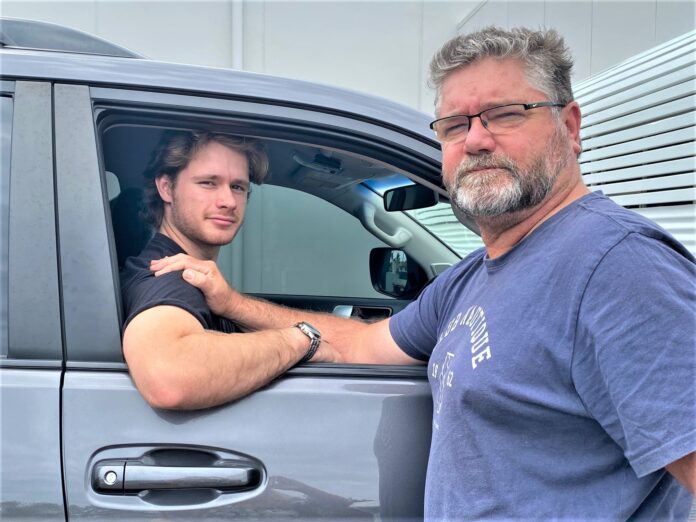Connor Nelson ‘woke up’ behind the steering wheel of his four-wheel-drive as it hurtled at 110km/h towards a steel guardrail on the Bruce Highway at Forest Glen.
His eyes had been closed for mere microseconds, with his foot still on the accelerator.
Although the vehicle had veered off the road barely half a metre, it clipped a ‘hazard ahead’ road sign, jolting him back to reality in time to see the menacing barrier bearing down on him.
Seconds to impact. No airbags. Only 10km from home in Palmwoods.
Then he heard the sound of a B-double truck behind him slamming on the brakes just in time to prevent a second collision.
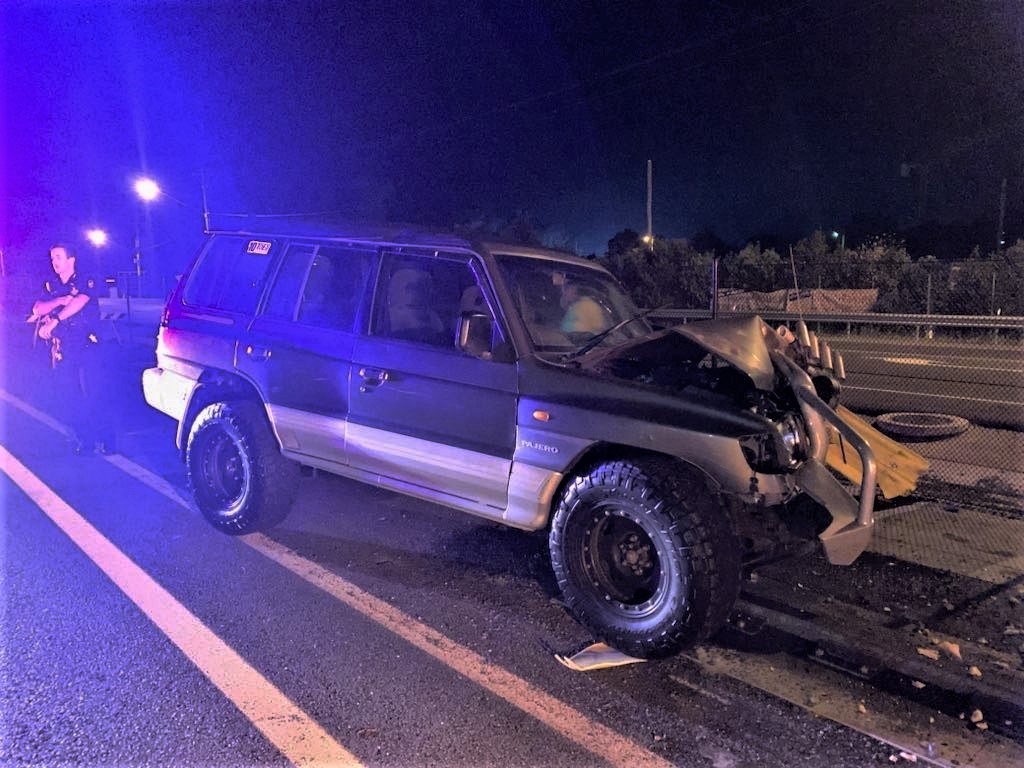
“Hitting the barrier, I felt the back of the car lift and saw my engine explode in front of me,” Connor recalled clearly.
“I saw my radiator fluid go over my car. It’s pretty surreal.
“I turned off the car engine. I put hazard lights on.
“The door was stuck so I couldn’t get out. I barged it with my shoulder and that didn’t work so I smacked it with my feet.
“Then I just walked around my car and had a look. The rooftop tent had come off the top of the car and slid down the highway maybe 100 to 120m.
“I was saying to myself: ‘This is crazy. I can’t believe this has actually happened.’”
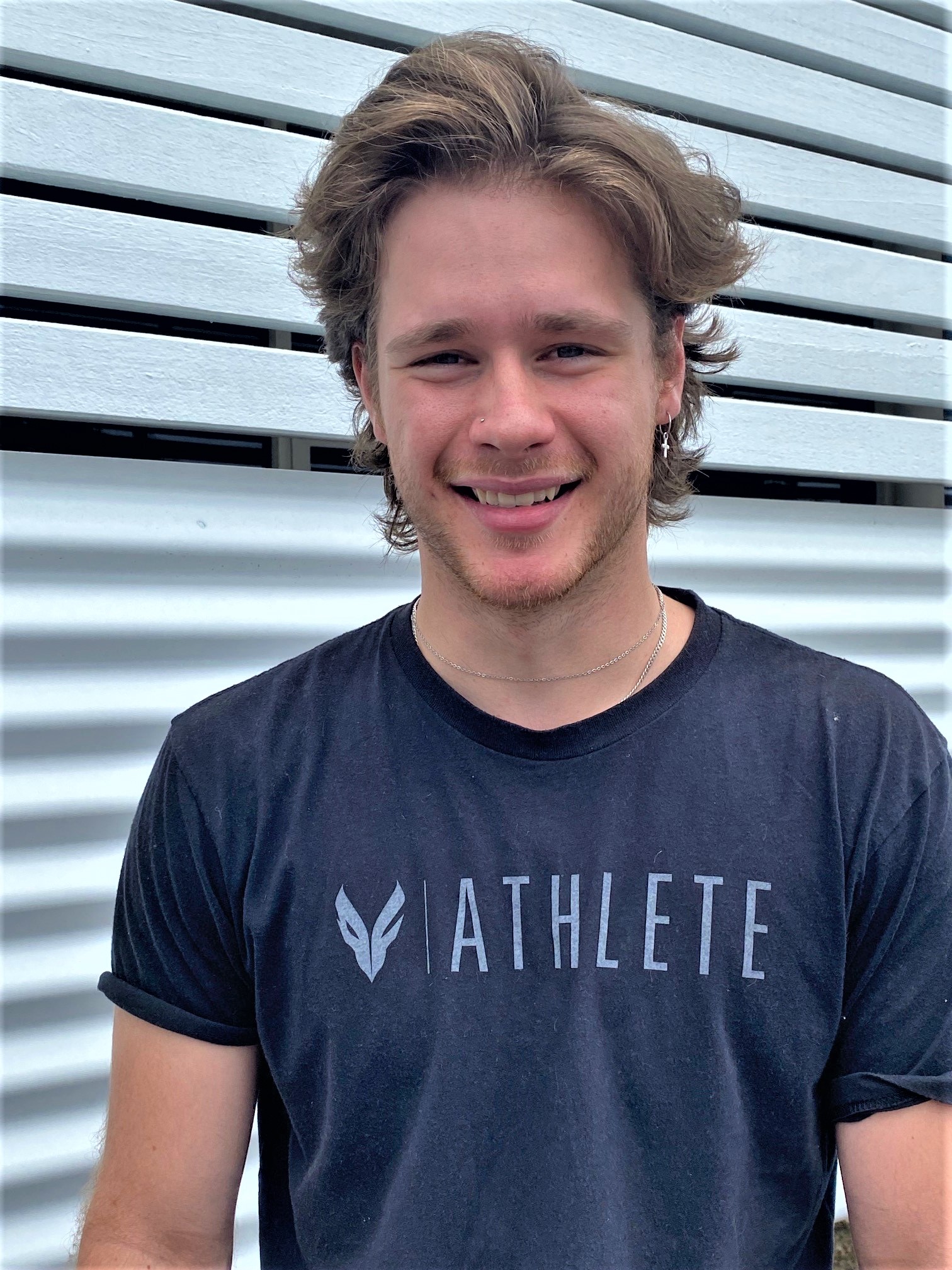
Emergency services personnel, Sunshine Coast University Hospital staff and doctors and the Transport and Main Roads workers who sprinted to his immediate aid in the early hours of Friday, November 25, were dumbfounded that Connor was able to walk away from the crash virtually unscathed.
However, the mangled wreck of his 1999 Mitsubishi Pajero – all concertinaed in on the left, with the engine pushed onto what would have been the front passenger’s seat – is testament to how close he came to breaking his parents’ hearts and becoming a statistic on the roads in 2022.
So far this year, 284 people – a jumbo jetload of men, women and children – have lost their lives on Queensland roads, with 23 of those on the Sunshine Coast.
Connor, the sole occupant of the car at the time of the crash, realises he is one of the lucky ones.
He was saved by a seatbelt in a steel-enforced car that hit a guard rail at what police described as the perfect angle and exact spot to save the driver.
That’s why it’s no accident the 19-year-old student and part-time actor is driving home the vital road safety message to Sunshine Coast motorists to stop, revive and survive these holidays.
Do you have an opinion to share? Submit a Letter to the Editor with your name and suburb at Sunshine Coast News via: news@sunshinecoastnews.com.au
He wanted to tell his first-hand, chilling account of the dangers of driver fatigue as a cautionary tale to others.
The son of a highway patrol motorbike cop and journalist grew up having the long-standing Queensland Police campaign covering the Fatal Five road safety message drummed into him.
No speeding. No driving under the influence of drugs or alcohol. No driving while tired. No driving while distracted. No driving without a seatbelt.
As a responsible driver, he thought he had done everything right.
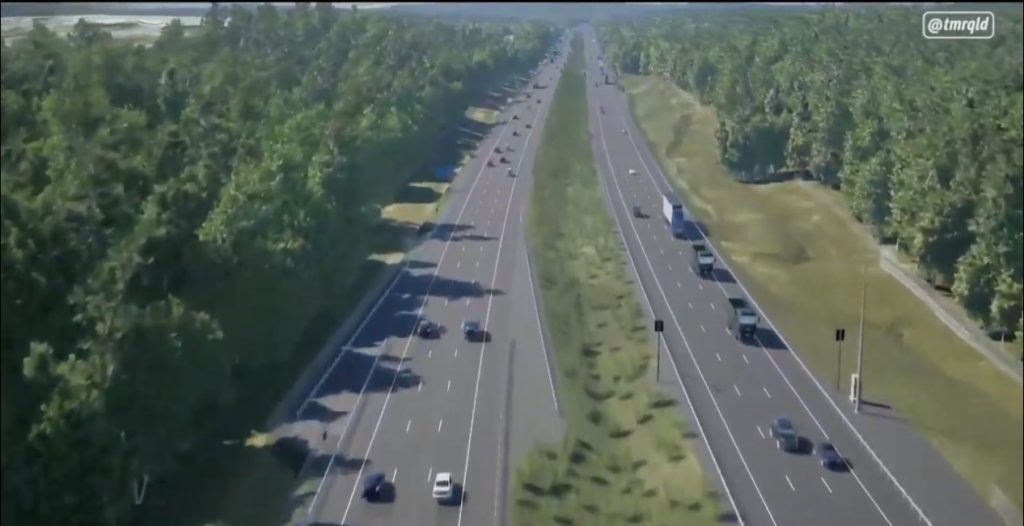
But he admits that, like many of his friends and other young adults behind the wheel, he was “young, naive and feeling invincible”.
Connor had a casting call to Brisbane City early on the Thursday for a job that was going to take 11 hours, finishing about 10pm. But the filming went overtime.
His concerned mum Ingrid suggested he stay overnight in Brisbane with an aunt rather than tackle a late-night drive after such a long day.
But Connor assured her he’d be fine. He planned on stopping halfway at the BP Burpengary on the highway northbound.
“I didn’t feel as though I needed (a rest), which I think on my behalf was a massive fault,” Connor admitted.
“I stopped – not because I was feeling tired but because I was starving. I wanted to eat and have a sugary drink as well.
“After having the sugary drink, I was ready to go. Making sure I was wide awake, I had my windows down and I had music blaring. By this time, it was early morning so I was concentrating.
“Things deteriorated very quickly. I came down from my sugar spike and … I did experience longer blinks. The wind was not really hitting my face anymore.
“And then it just happened. From point of impact, I don’t remember 20k beforehand on the drive.”
The crash was logged at 2.20am near roadworks outside the BP Forest Glen on Mons Road.
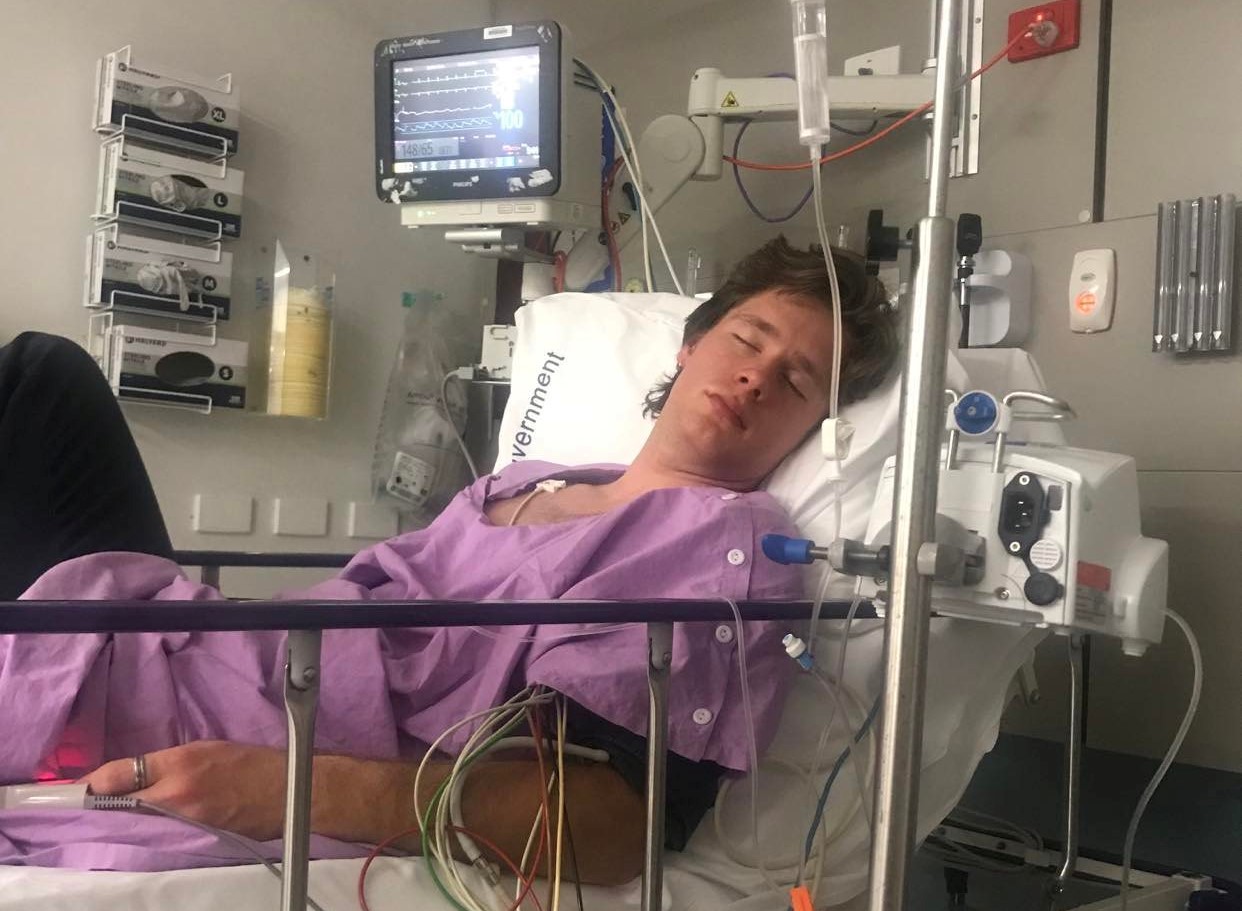
Connor was able to walk on his own to the ambulance which arrived less than 10 minutes later, answer questions, do the required health checks on the scene and give a negative breathalyser test before being taken to hospital as a precaution. He was released after 7am.
“(The paramedics) saw the car and they asked me, ‘Were you in that?’ I said, ‘Yes I was’ and they said, ‘That’s ridiculous. We went to a prang a week prior, the car was less affected and he didn’t make it’.”
As a seasoned police officer, Connor’s father Sergeant Dave Nelson, a Highway Patrol Sunshine Coast senior traffic officer, knows such an impact usually results in severe and critical injuries or death.
Over the years, he has had to break the news to countless residents that their loved ones have been killed or badly hurt in a car accident.
SUBSCRIBE here now for our FREE news feed, direct to your inbox daily!
Sgt Nelson’s principal duties revolve around reducing road trauma, including speaking to Sunshine Coast high schoolers about fatigue as part of Fatal Five road safety awareness presentations.
He said that at this time of year, people generally stayed awake longer and partied more, and were driving more frequently and over longer distances.
Yet many motorists were unaware that fatigue kills.
Driving without sleep for 24 hours, he said, was the equivalent of being drunk and blowing 0.15 on a breathalyser test.

“What Connor said – winding the window down, turning the music up really high – that does absolutely nothing (to prevent fatigue),” Sgt Nelson said.
“Your body has muscle memory so if you’re driving and you put windows down and you are listening to music, your body’s muscle memory is that you’re still driving and you’re still falling asleep.
“You’ve actually got to stop and do something completely different to break that muscle memory.
“You need to pull over straight away and have a sleep.
“Getting out and walking around the car will only give you another one or two kilometres.”
The accident was a wake-up call for Connor but the family hopes his story might make people think twice and perhaps even save a life these holidays.
“My advice as a dad is heightened by being a police officer and seeing what I’ve seen,” Sgt Nelson said.
“I’ve been to so many deaths on the Bruce highway with people falling asleep.
“The biggest message that I can put forward is: your life is not worth saving 20 minutes of time because you didn’t stop and have a rest.
“There’s nothing better than when we’re doing the highway runs and you see a car pulled up on the side of the road. We will always pull up behind and make sure everything is all right but when you see someone having a sleep, you’re punching the air.
“Someone is actually thinking – putting time and life before the rush and desire to get home.”


